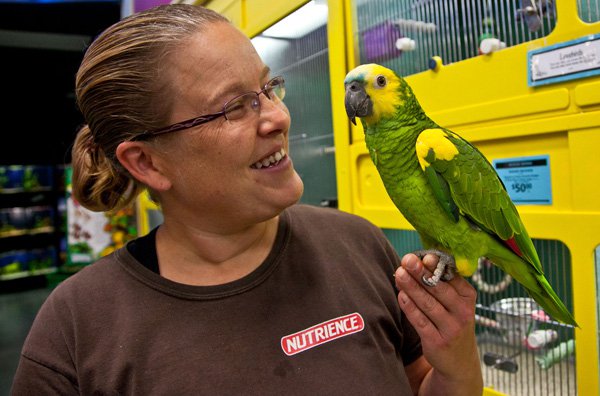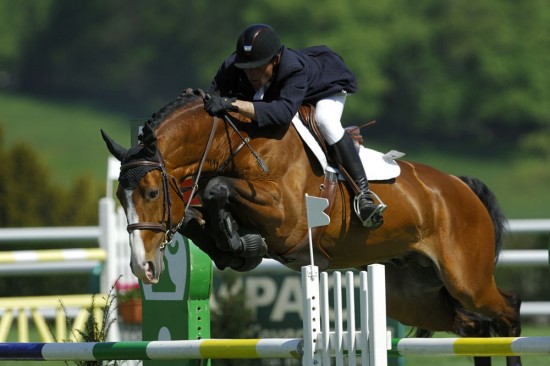
Many dog owners are anxious to give their four legged
companions the freedom of going off leash, but it is important
not to rush that important step. Dogs should only be allowed off
their leash after they have become masters of all the basic
obedience commands, such as walking at your heel, sitting and
staying on command.
Another skill that must be completely mastered before the dog
can be taken off the leash is the come when called command. Even
if the dog can heel, sit and stay perfectly, if he cannot be
relied upon to come when called, he is not ready to be taken off
the leash.
Taking any dog off the leash, especially in a busy, crowded
area, or one with a lot of traffic, is a big step and not one to
be taken lightly. It is vital to adequately test your dog in a
safe environment before taking him off his leash. After all, the
leash is the main instrument of control. You must be absolutely
certain you can rely on your voice commands for control before
removing the leash.
After the dog has been trained to understand the sit, stay and
come when called commands, it is important to challenge the dog
with various distractions. It is a good idea to start by
introducing other people, other animals, or both, while the dog
is in a safe environment like a fenced in yard.
Have a friend or neighbor stand just outside the fence while you
hold you dog on the leash. As the friend or family member walks
around the outside of the fence, watch your dog’s reactions
closely. If he starts to pull at the leash, quickly tug him back.
Repeat this exercise until the dog will reliably remain at your
side. After this, you can try dropping the leash, and eventually
removing the leash and repeating the distraction. It is
important to vary the distractions, such as introducing other
animals, other people, traffic, rolling balls, etc.
After your dog is able to remain still in the face of
distraction, start introducing the come when called lessons with
distractions in place. Try inviting some of the neighbors, and
their dogs, over to play. As the dogs are playing in the fenced
in yard, try calling your dog.
When the dog comes to you, immediately give him lots of praise,
and perhaps a food reward. After the dog has been rewarded,
immediately allow him to go back to playing. Repeat this several
times throughout the day, making sure each time to reward the
dog and immediately allow him to go back to his fun.
After the dog has seemingly mastered coming when called in his
own yard, try finding a local dog park or similar area where you
can practice with your dog. It is important to make the area
small, or to choose a fenced in area, in case you lose control
of the dog. If you cannot find a fenced in area, choose an area
well away from people and cars.
Practice with your dog by allowing him to play with other dogs,
or just to sniff around, then calling your dog. When he comes to
you, immediately reward and praise him, then let him resume his
previous activities. Doing this will teach the dog that coming
to you is the best option and the one most likely to bring both
rewards and continued good times.
Only after the dog has consistently demonstrated the ability to
come when called, even when there are many distractions around,
is it safe to allow him time off leash. Off leash time should
never be unsupervised time. It is important, both for your well
being and your dog’s, that you know where he is and what he is
doing at all times.
It is easy for a dog to get into trouble quickly, so you should
always keep an eye on him, whether he is chasing squirrels in
the park, playing with other dogs, or just chasing a ball with
the neighbor’s kids.
For more information please visit http://about-animals.info/
 Arthritis In Overweight Dogs
As a boisterous, energetic young dog, my Labrador would
Arthritis In Overweight Dogs
As a boisterous, energetic young dog, my Labrador would
 6 Large Domestic Cat Breeds With Wild Relatives
6 Large Domestic
6 Large Domestic Cat Breeds With Wild Relatives
6 Large Domestic
 Steps That Would Find You The Right Pet Sitter
Steps That Would Find You The Right Pet Sitter
Steps That Would Find You The Right Pet Sitter
Steps That Would Find You The Right Pet Sitter
 Keeping Land Crabs As Pets
Keeping Land Crab
Keeping Land Crabs As Pets
Keeping Land Crab
 Equestrian Sports And Disciplines
Equestrian Sports
Equestrian Sports And Disciplines
Equestrian Sports
Copyright © 2005-2016 Pet Information All Rights Reserved
Contact us: www162date@outlook.com